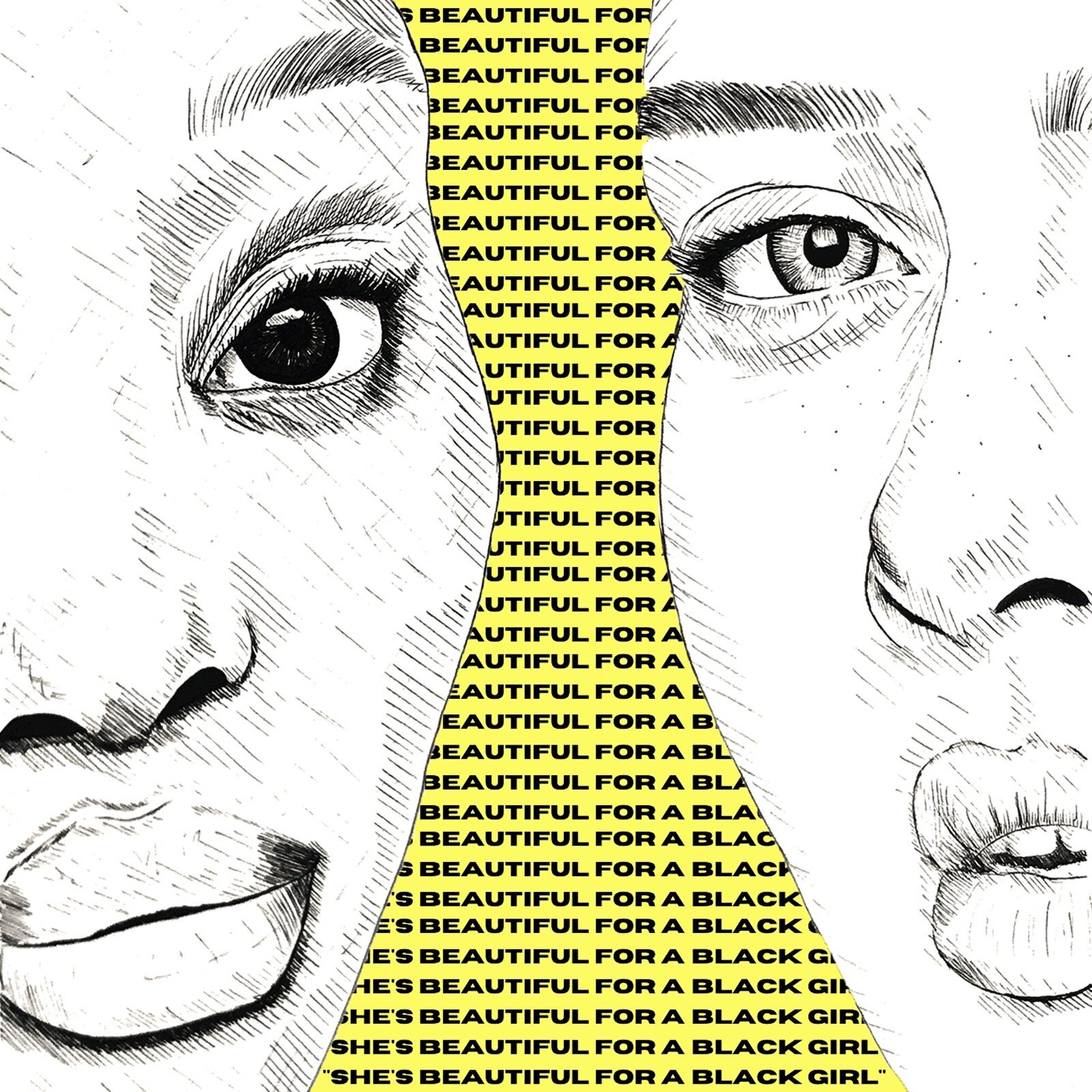“Now, here is an example of a beautiful black woman”
Ella Knott X Bold Voices
@ella_knott
Race and Rape Culture: A Three Part Series
The world - white people mainly, black people more or less have this one down to a tee - is finally being forced to open its eyes and see the systemic and systematic oppression of the black community. Thinking back to my own personal experiences and those of my family, I notice how, not only were these negative experiences unique to black people, but many white people may not have even been able to identify an issue. I do not think that all of these comments were intended maliciously and in fact, I often believed some were genuinely trying to be nice. Being in the skin that I am in inevitably makes me “hyper-conscious” to remarks with subtle insinuations about my race, which, to the untrained ear, may easily be missed.
My mother is a black woman from Jamaica and my father is a white British man. If you squint a little, you may be able to picture mine and my brother’s complexion. A young child may refer to me as milk chocolate, but society sees me as black, despite being an equal mixture of my parents. This inability to identify “harmless” comments, subtly (for the most part) riddled with racist, sexist and wildly stereotypical societal norms, happens occasionally within my immediate family because of our differences in gender and race. Unsurprisingly, only my mother and I are able to relate to one another in this area (but not fully - Google: colourism!) because we possess the two options society considers “inferior” when choosing between black and white, and man and woman. If you've heard of intersectionality but aren't exactly sure what it means - this is a great example... read on to understand how as black women our overlapping racial and gendered identities impact the discrimination and oppression we experience.
So, how does race and rape culture intersect?
Every black person will be able to identify a time in which they were objectified in a sexual manner as a result of racial stereotypes. This three-part blog series explores tiring, yet frequent comments heard by black people. Through my mother’s, my brother’s and my own lived experiences, I hope to make the intersection between race and rape culture unmistakeable. The use of race in the objectification of human beings adds another layer of intrusion and oppression to sexual harassment. Often disguised as a compliment, people are generally ignorant to the "unintended" consequences of these comments. However, they can have serious effects on the self-esteem and self-worth of black men and women as well as perpetuating racial inequalities and reinforcing colonial ideals.
Part One
“Now, here is an example of a beautiful black woman.”
This remark, from a white man and stranger no less, left my mother baffled and speechless at the airport a few months back, and speechlessness is in no way a familiar trait of hers. The man returned a bewildered look, instructed her to take it as a compliment and walked away. Mum came home and told us the story. Okay, now taking into account what you have read above in the introduction, how do you think the responses from the rest of the family differed?
Well, my brother concluded it was a weird and random thing to say to a stranger, making sure to add that of course she is beautiful - not an incorrect insight in all fairness. My dear white dad’s initial take on the story was that the man was right, it was in fact a compliment – ding, ding, ding... white male privilege! I, on the other hand, felt my mum’s outrage at the objectification she had experienced and the sheer ignorance of these men who are blinded by a societal construct of beauty in which white, blonde, blue eyed women dominate. As black women exposed to mass media and who see very little representation of people who look like us, it is clear to us both why our beauty is characterised as “black beauty”. This term insinuates that it is different and perhaps not as beautiful as “normal” (white) beauty. Quite simply, the “beautiful” women in society, for the most part, do not look like us. This is very disheartening for black women, and particularly young black girls – I remember, as a child, wishing I had straight hair that fell perfectly onto my shoulders instead of the wild and out-of-control afro I thought (and was told) that I had. This lack of representation and diversity in fashion, television, film, books, and more is damaging. We need to do better.
My mother is beautiful, and she is black. BUT we need to recognise that certain comments are multi-layered, and it is time people start dissecting and truly think about what they say before they say it. You may not have control over your first thought but you sure as hell have control over your second thought and your first action. (I stole this off @shityoushouldcareabout who stole it off someone, but they don’t know the someone they stole it off, but I love it.)
PSA: please remember to check out the Black Lives Matter resources on the @hearthisboldvoice Instagram story highlights. Let’s not become complacent, the fight is far from over and there is always more we can do. We need to keep educating ourselves and having difficult conversations. In fact, use this piece to start one of these conversations - share this with one other person and see what they think!
Ready for Part Two?! Read on for “You must have a big c*ck” now…

